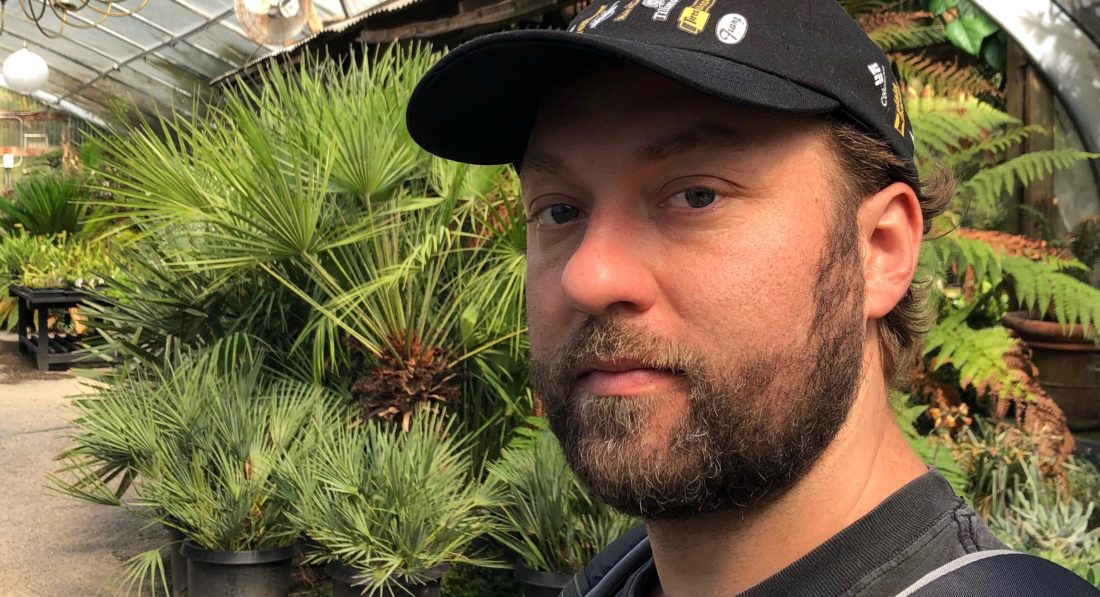Budtender Bios: Chris
This is Chris, Farma’s resident cinematographer. You may have seen a documentary or a sweet video he’s made, or his epic aerial shots of Timbers stadium. That’s because Chris is licensed to fly a freaking drone.
He can also find the cutest and most interesting content the internet has to offer, and he’s extremely well-versed in technology, audio, and visual arts. Besides just being an all-around cool human, Chris is also a great listener– which makes him really, really good at his job. He’s patient, compassionate, and has been in the weed game for years. He takes his time with folks at the counter, and makes sure every customer leaves the shop with new nuggets of knowledge and a sense of security in their often newfound relationship with cannabis.
You can find Chris’ portfolio here.
Q: What do you do at Farma?
A: Budtender.
Q: What did you do before getting into the cannabis industry?
A: Filmmaker and artist with a history of retail and customer service. Love to help people and communicate ideas and information about subjects I have a passion for.
Q: What made you want to get into the cannabis industry?
A: My personal relationship with cannabis seemed to give me an awareness of the amazing potentials afforded by the plant and its extracts. I was already aware of the potential health benefits connected to the plant and wanted to learn as much as possible. Farma already had the reputation for being the most focused on education and science-based approaches to classification and recommendations.
Q: What’s so special about Farma?
A: The people that work there. The best thing the founders did was invest in the employees. They spent time educating and empowering everyone, which has continued as new people have joined.
Q: How do you spend your free time?
A: Usually on a creative project of some sort. I recently got a filmmaking degree so I have been putting it to good use whenever I can. I am currently editing a short form documentary.
Q: What’s your favorite way to consume cannabis? (method of consumption)
A: I generally prefer to use a moderately sized pipe. I currently have a Grav spoon.
Q: What are some of your favorite things to do while high?
A: I like to watch and edit films, explore nature, take pictures, listen to music or go dancing!
Q: Favorite terpenes?
A: I’m into pinene, linalool, limonene.
Q: Favorite minor cannabinoids?
A: THC-V.
Q: Favorite cannabis type (I, II, III)? Favorite ratio?
A: Type I. Typically, the other types make me feel sleepy or down. I like the stimulation I get from Type I cannabis, so I use it for creativity and inspiration.
Q: Favorite non-flower product (and why)?
A: Evolvd full-spectrum oil– it activates quickly, it’s discrete, and tastes great . It’s also less harsh than flower and easy to modulate dosing.
Q: Describe a favorite memory of using cannabis.
A: Recently had an amazing meal in Newport, Oregon at Local Ocean which is a restaurant and seafood market. It was the freshest Cioppino soup I’ve ever had. I featured salmon, clams, muscles, and scallops. What a treat. I shared the meal with my brother and it was a great birthday celebration! Everything about the trip to the coast was memorable, but that meal truly stood out.
Q: What is a popular misconception about budtending that you can mythbust?
A: A common issue I face often is the expectation that we can make a definitive recommendation to help with a certain symptom during an initial interaction. The key thing is to stay open and give some different things a try. We are here to help interpret reactions and results and formulate a plan for going forward.
Through education and communication we can build a dialogue that will help the patient whenever and wherever they purchase cannabis in the future.
Q: What do you think is the most important skill a budtender can have?
A: Empathy and listening skills are the most vital. It is important to meet each customer where they are at and work to fulfill their needs. Only by really hearing them can we actually help.

